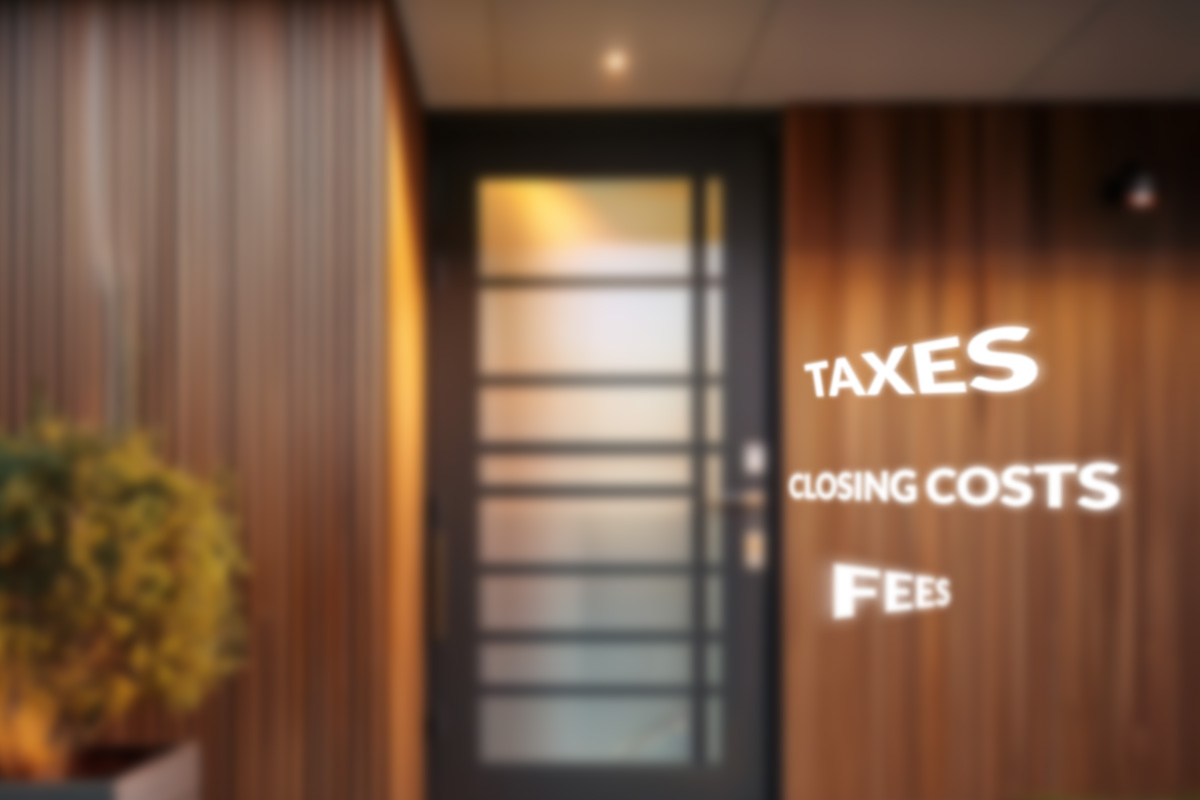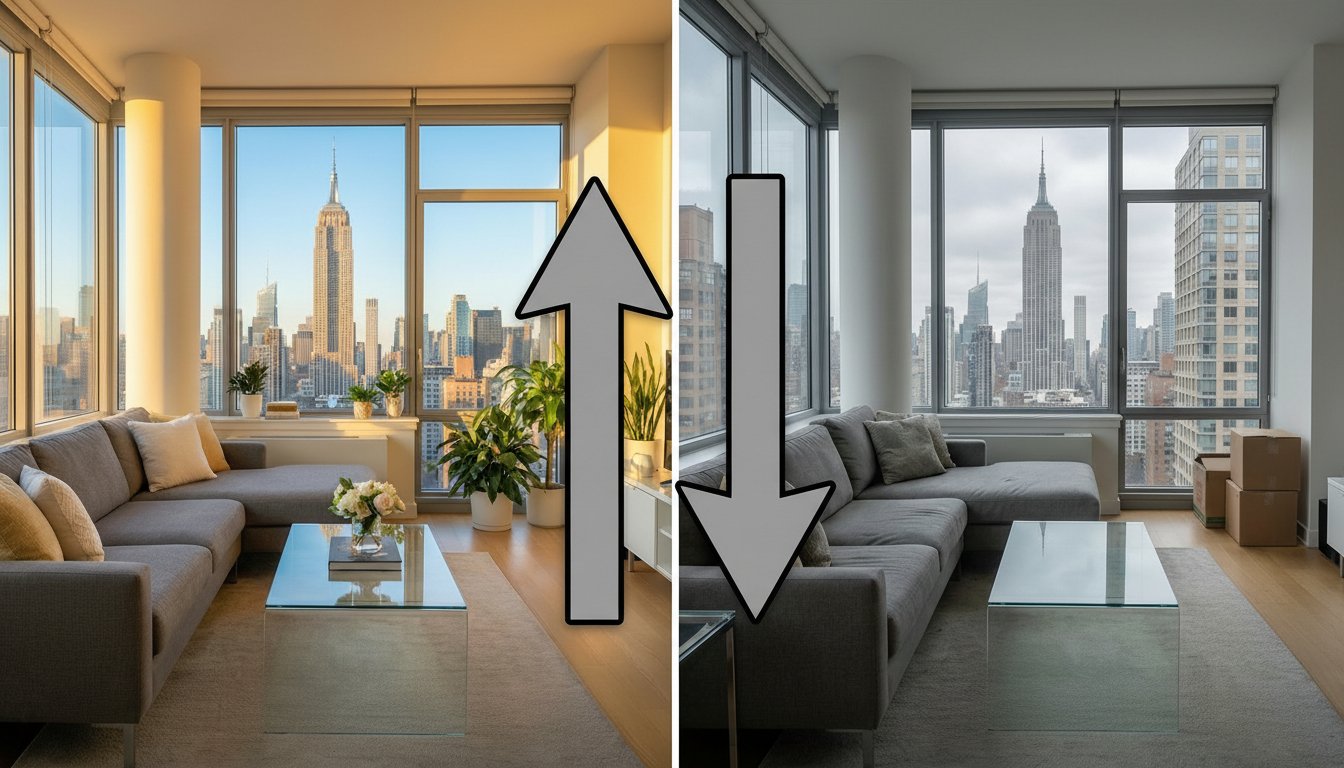My Family's $1.5 M Condo Mistake (And How to Avoid It)
Imagine wiring your life savings overseas, only to learn 24 hours before the closing that the bank will only cover 80% and the backup loan demands 16% interest. That's the shock that made me realize I wanted to become an agent and show my clients what not to do when purchasing a home to protect them from going through what we did.
According to a study by Clever Real Estate, 82% of new home buyers regret their purchase. It's not because buying a home is a bad investment; it's because many buyers lack the knowledge to fully understand their financial commitment and avoid common pitfalls.
I know firsthand how home buying excitement can quickly turn into anxiety without the proper guidance. It's what inspired me to become an agent. This $1.5 million disaster became my origin story, and the lessons you'll hear today can save you from 6-figure regret.
What to Look For When Buying a Condo
Buying a home can be a thrilling experience, but it's important not to let that excitement cloud your judgment. Otherwise, you'll end up like the 82% of new buyers who quickly regret their purchase.
In this guide, we'll cover three major points:
- Where my family's "airtight" $1.5 million deal broke down and what it cost in today's dollars
- How that mess inspired me to enter real estate and why my playbook is a direct response to the agent who vanished on us
- A simple plan you can follow right now to avoid a six-figure mistake when buying a condo

My Story: The $1.5 Million Condo Mistake
Let me take you back. The year is 1999.
My parents are in a crowded ballroom at a Hong Kong hotel. A developer's rep shows dazzling Manhattan renderings. The room is filled with applause, deposits are being made, and confidence is everywhere.
A few weeks later, we signed what looks like a bulletproof contract. So we wired a 10% deposit and flew home, certain our financing is set.
Months roll by. Construction photos arrive, and our group chats light up with floor plan emojis. Life is good.
Fast forward 18 months. I'm 19 at the time, studying in the United States, and I'm the only family member close enough to attend the closing.
I'm sitting in a Midtown law office and speaking on a red phone. I'm shocked to hear this: the bank lost our file, the closing is tomorrow, and we must wire hundreds of thousands more, OR we lose the condo and our deposit.
With no experience and no guidance on what to know before buying a condo, we chose the only option left: a 16% bridge loan AND a $15,000 monthly payment to keep our dream alive.
What about the developer's rep and the agent who signed us up? Well, they walk into the closing with their fur coat on, pick up a six-figure check, and walk right out.
That's when I learned that even smart global buyers can get blindsided in New York.
Home Buying Red Flags: What Went Wrong
So, where did it all go wrong? What led up to my family's $1.5 million home buying mistake, and how could it have been avoided?
To put it into perspective $1.5M in 2000 was about $3M today. That's the weight we carried.
Here's the chaos in replay:
- Domino 1: We wired 10% as a deposit, which felt routine.
- Domino 2: Construction moved right along, so we stopped worrying.
- Domino 3: 30 days before closing, we got the standard notice: have the rest of your funds ready. Still no red flags.
- Domino 4: Inside the bank, someone misplaced our entire loan file. We found out just 24 hours before the closing.
- Domino 5: The clock was down to zero. This is where we grabbed a 16% bridge loan and a $15,000 monthly payment as a last resort. This was the moment that rewired my career.

What To Do Before Buying a Home
What can you take away from my family's story? Here are four tips for buying a condominium to help you avoid the same fate:
- Your Own Agent: Understanding exactly who the agent is working for is one of the biggest things to know before buying a house. In New York, a dedicated buyer's agent owes you full loyalty. In many countries, one agent can represent both sides (dual agency is normal abroad), but here, that split loyalty can drain your wallet. Hire someone whose job is to protect only you.
- Two Layers of Financing: Don't stop at pre-approval. Push for full underwriting up front and keep a signed backup approval ready. Simple condo buying tips like this can save you thousands. A 4.5% loan you expect can suddenly flip to a 16% rescue loan overnight. Two approvals guard that gap.
- Prepare For Closing Cash Stock: Failing to fully account for closing costs is one of the biggest mistakes first-time homebuyers make, costing thousands. New development closings add surprise costs: tax escrow, last-minute building fees, rate-lock extensions, and additional transfers. These can top six figures, and wiring funds across time zones slows everything down. Avoid this common mistake for first-time homebuyers and plan your liquid cash before you sign.
- Build Protection Into the Contract: For a brand-new building, request three key clauses: a cap on contingency, a budget for rate lock extensions, and a penalty if the developer misses key dates. Even if the sponsor objects, the task itself exposes risks early and buys you leverage.
Put these four tips for buying a condo together and you'll stand on firmer ground than my family did any day.

Buying Tips From The Experts: How Undivided Can Save You From These Common Pitfalls
After that bridge loan shock, I walked outside, looked up at the Midtown skyline, and said, Never again. That was the day when becoming an agent stopped being a question and became my mission. Since 2022, we at Undivided have guided over 130 clients and helped them save $5.7 million.
Here are the safeguards we follow on every deal:
- The client always comes first, even if it means we walk away from the deal. No commission is worth your regret.
- Get pre-approved and be honest about the cash you'll need. If the numbers feel tight or uncertain, we stop and regroup.
- Demand a written closing cost before any contract ink dries to avoid one of the most common last-minute problems when buying a house. That single sheet prevents last-minute cash calls.
- Buying a home is 50% emotional and 50% financial. Letting emotions take over is one of the more common first-time home buyer mistakes that leads to regret. If stress or FOMO creeps in, pause, another home will appear. Don't let emotion override sound numbers.
Now that you know all the things to look for when purchasing a home, you're already ahead of the vast majority of buyers. Although knowing the red flags to look out for and putting these tips into practice are two different things entirely. Luckily, Undivided can help…


